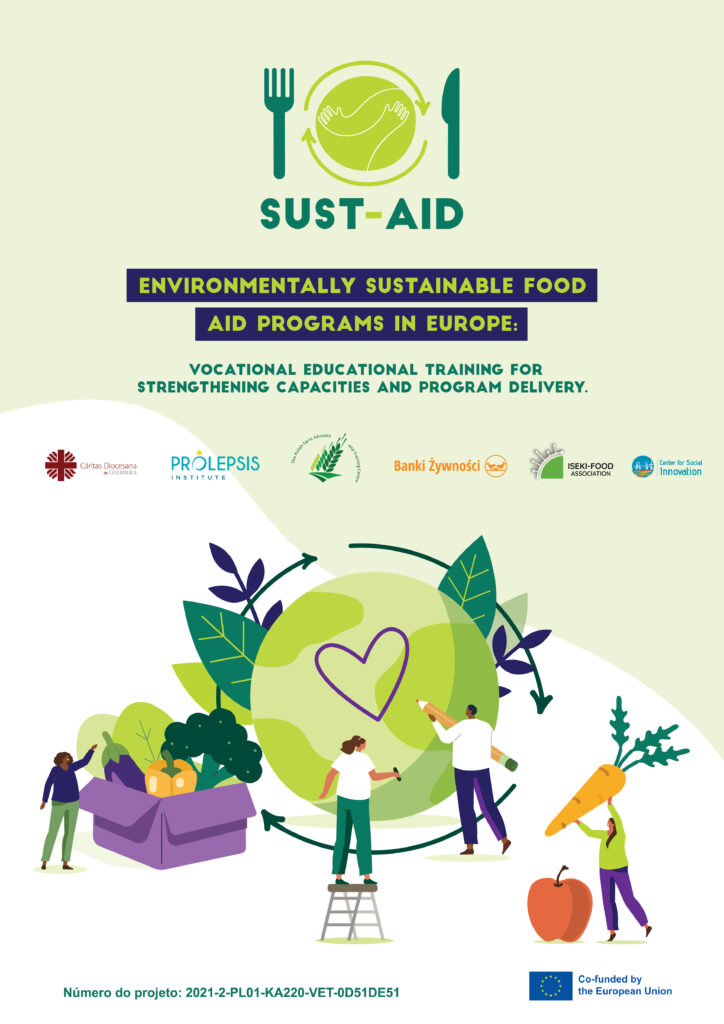Cáritas de Coimbra participates in a European project to promote sustainable food aid programmes
According to FAO, about 820 million people around the world experience chronic hunger while among them 113 million cope with acute severe insecurity, with the estimations being more adverse due to the consequences of COVID-19 pandemic. Furthermore, regarding data from the EU prevalence of food insecurity significantly increased from 9.4% (2007) to 12.2% (2011), with substantially higher rates in Eastern Europe, Cyprus, and Greece (FAO, 2019).
The above listed statistics contributed to the SUST-AID – Environmentally Sustainable Food Aid programs in Europe: Vocational educational training for strengthening capacities and program delivery project to be developed by the consortium of: The Polish Farm Advisory and Training Centre not-for-profit Sp. z o. o. as the project coordinator, and five other organisations as project partners: PROLEPSIS Civil Law Non Profit Organization of Preventive Environmental and Occupational Medicine, CARITAS DIOCESANA DE COIMBRA, Federation of Polish Food Banks, ISEKI-Food Association, and CSI CENTER FOR SOCIAL INNOVATION LTD.
The SUST-AID project will cover the current gaps and needs in knowledge, training and skills by developing and evaluating a VET programme for the delivery of sustainable food aid programmes.
The main aims of the consortium are to:
- enhance capacity of food-aid programmes in Europe to provide sustainable food-aid of good quality and maximizing the positive impact and social inclusion of vulnerable populations,
- promote action in line with the Sustainable Development Goals, and
- increase nutritional, green and management skills of staff and volunteers of food-aid programmes.
Additionally, the SUST-AID project takes into consideration the urgent need for the reduction of food waste, as well as the sustainable food production and consumption practices, in accordance with the 17 Sustainable Development Goals (SDGs) set by the United Nations, as part of food aid delivery.
“The consumer awareness of Poles is slowly increasing, so we are gradually reducing food waste. This is also influenced by the worsening economic situation, which forces us to change our habits. We have started to shop more consciously and rationally, which has reduced the amount of food going to the bin,” stresses Beata Ciepła, President of the Federation of Polish Food Banks – one of the SUST-AID project partners.
For more information regarding the SUST-AID project, please contact us at: office@farm-advisory.eu.
